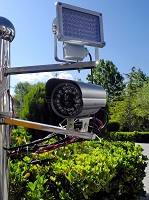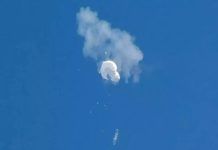There are 170 million CCTV cameras in place across China, with 400 million more set to be installed by 2020. Boasting the world’s largest CCTV monitoring system, the country is also investing in artificial intelligence (AI) and facial recognition technologies. In a demonstration of technological prowess, Chinese officials located and apprehended BBC reporter John Sudworth only seven minutes after his image was “flagged to authorities.”
This wasn’t a real arrest, however. It was merely an exercise to show the power of both the nation’s CCTV cameras and advanced facial recognition technology. Judging from the speed of Sudworth’s capture, it’s clear that China’s monitoring systems are undoubtedly capable. While China uses its surveillance systems to support police investigations and increase overall security, private corporations also utilize these technologies to monitor workers. Some have argued that the technology could easily be abused by the government.
From an efficacy standpoint, China’s surveillance system is impressive. But the threat of it being used in nefarious or unethical ways is very real. This is especially potent because of the use of a reporter in this demonstration. Right now, in places like Turkey, for instance, journalists are being tracked down and jailed. Not all governments respect the right of free speech, and this technology opens up a world of nightmarish possibilities.
If not properly regulated, such extensive monitoring systems could dramatically impact information sharing and modern journalism. Currently reporters are able to travel to and cover stories in most countries without serious interference from that nation’s government. But if more and more governments use surveillance technology like this to track them down, not only will more journalists be in danger, but information about activity in more authoritarian countries might not be available.
If Big Brother is watching, who is guiding its eyes? This technology, a staple of science fiction tales gone wrong, has the potential to restrict free speech and protect governments who are, to put it simply, acting badly. With all of the information we entrust to our various devices — where we are, what we’re buying, what we’re searching for — individuals are easier than ever to pin down. But using this information to identify, track, and eventually capture individuals in a matter of minutes has the potential to dismantle life as we know it.








